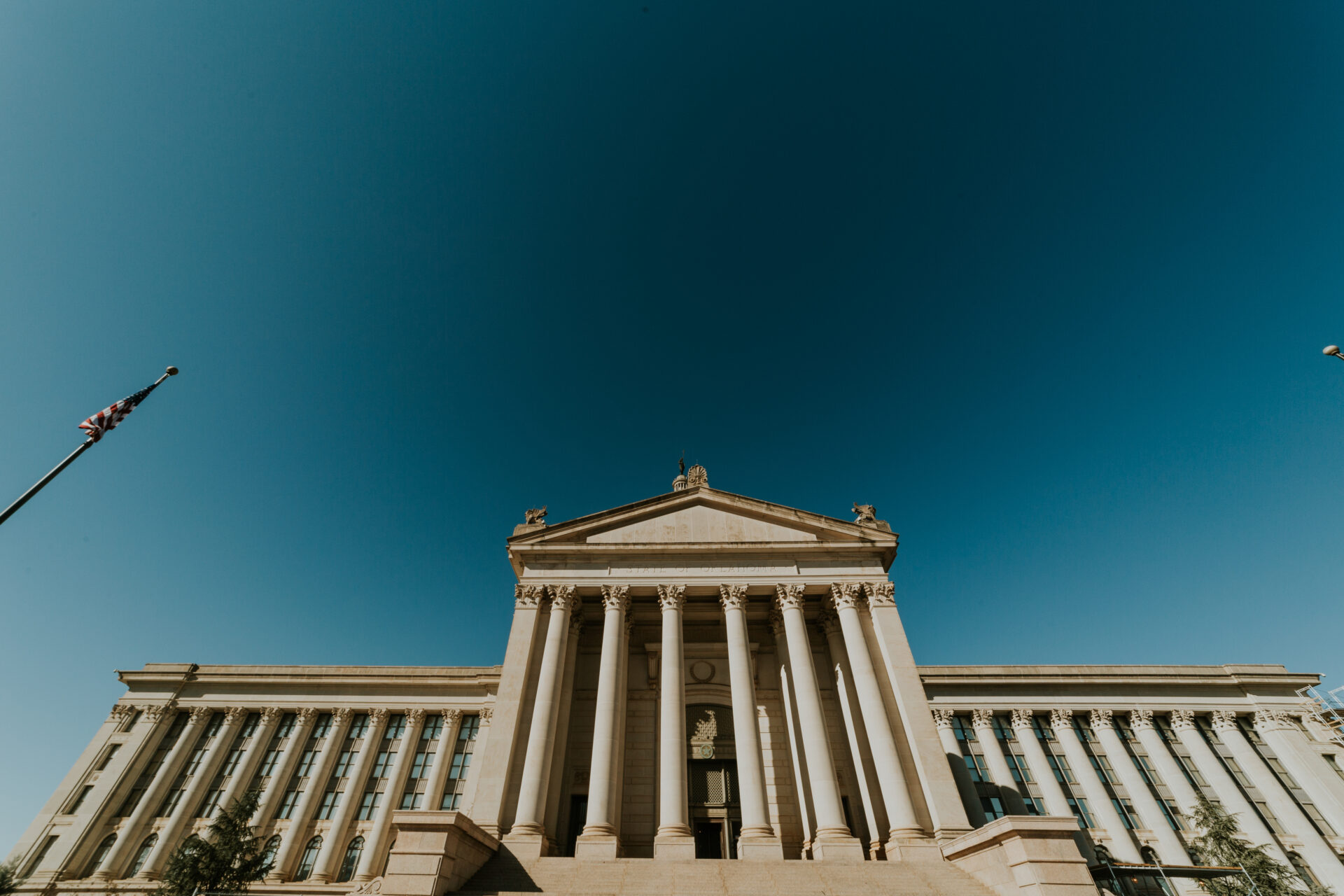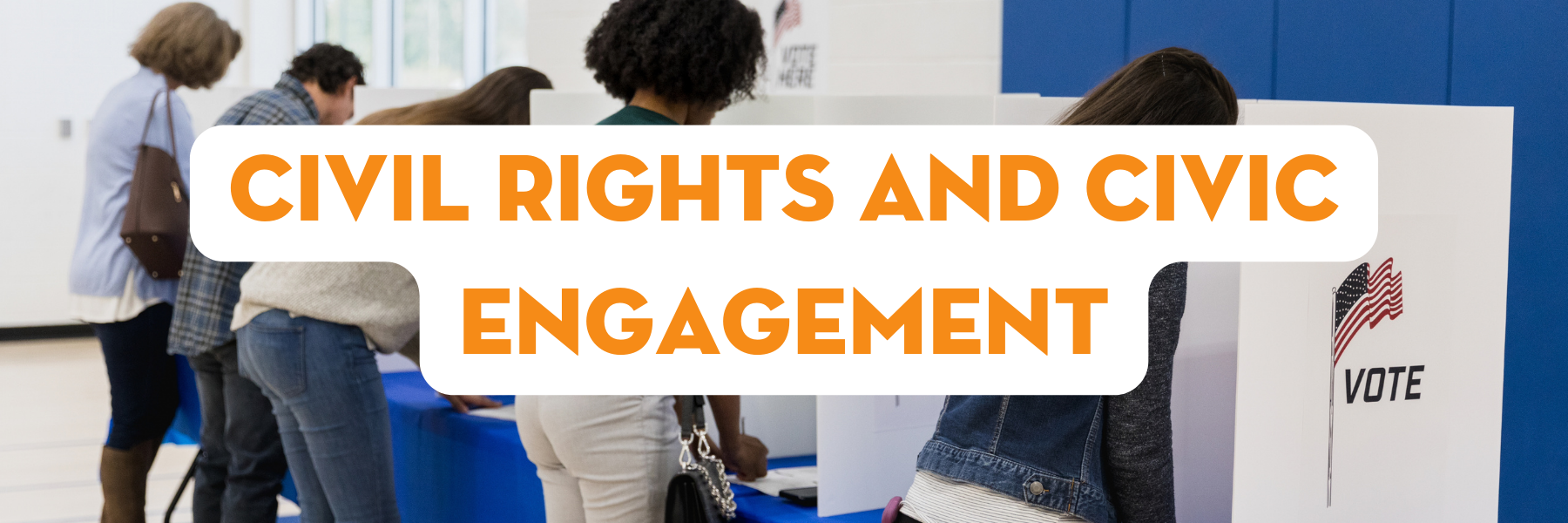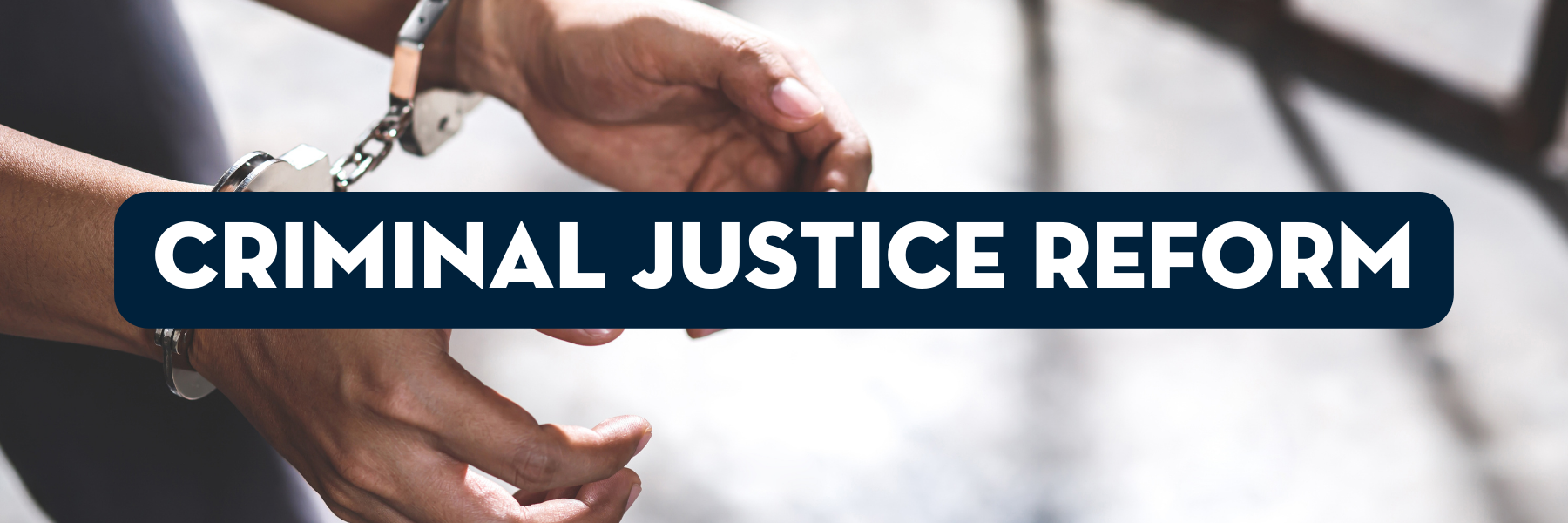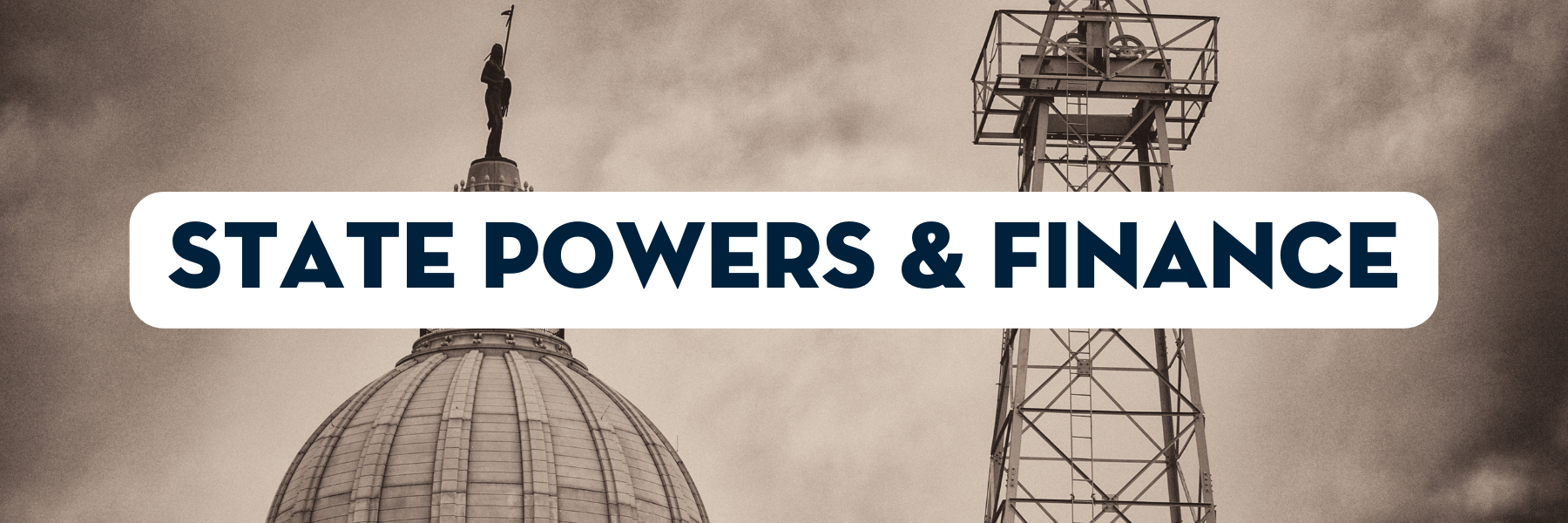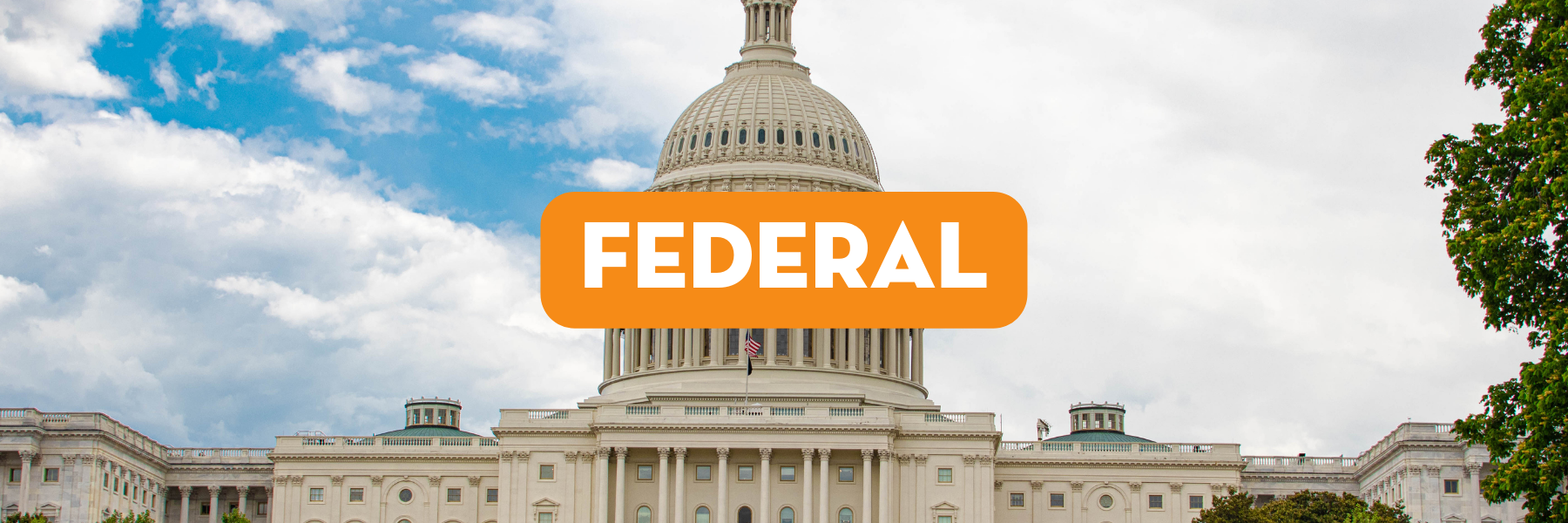Each year the Government Affairs Department looks at bills filed past and present to see what our legislature might focus on for the upcoming legislative session and how this will impact our community. In addition, we look at our state as a whole and its status as it relates to these policy areas. From here, we create our policy platform to show what we will focus on for tracking, advocacy, and education for our Oklahoma Muslim community. The Policy Platforms serve as guidance for our advocacy activities and for how we strengthen the civic power of our Oklahoma Muslim voting bloc.
Oklahoma has one of the highest rates of poverty in the United States, currently ranking 8th highest nationwide. This has steadily increased over the years, and it impacts children and people of color at a higher rate.
Nationwide, Muslims are the most likely faith community to report a low income and were more likely to believe that poverty is primarily due to circumstances beyond one’s control, unlike the common and predominant view that poverty is “due to bad choices”. Early Islamic teachings and history highlight the importance of justice, dignity, and social equality. Zakat, one of the five pillars of Islamic practice, serves to aid in redistributing wealth and helping those most in need.
At CAIR Oklahoma, several of our key policy issues that affect our community all interconnect with poverty and injustice. These policies make already vulnerable populations more at risk for further exploitation and harm. Here are some of the policy areas that perpetuate poverty and exacerbate suffering for Oklahoma families.
Food Insecurity
This past year, CAIR Oklahoma participated in an interim study on food insecurity in immigrant communities, particularly amongst our new Afghan neighbors. We learned more about the struggles immigrant communities face accessing supplemental food, specifically those with religious dietary restrictions like halal.
- We support expanding access to fresh produce through programs that prioritize partnerships with local farmers.
- It is necessary to increase support for diverse communities, specifically with language and cultural competency, when it comes to interacting and renewing resources such as SNAP and WIC.
- We recognize the vital work of food pantries and support measures to increase funding for their missions.
Housing
Oklahoma is facing a dire shortage of affordable housing, especially for extremely low-income renters. Even for people with access to housing, it is neither safe nor secure. With high eviction rates and no laws in place that protect renters from retaliation by predatory or abusive landlords, many Oklahomans are consistently housing insecure or facing homelessness.
- We advocate for legislation raising Oklahoma’s standards and creating protections for landlords and tenants alike through anti-retaliation laws.
- We encourage extending the eviction timeline and raising the fees to file an eviction to create a more equitable system for Oklahoma’s renters.
- Oklahoma needs more affordable, safe housing stock that ensures people have longer-term access to housing.
- We support efforts to include air conditioning as a requirement for habitability in the State of Oklahoma, which consistently reaches dangerous temperatures in the summer.
Healthcare
Oklahoma has the second highest uninsured rate in the nation for its total population. We also rank 6th highest for the overall death rate, and we consistently have one of the highest rates of pregnancy-related deaths and infant mortality.
In addition to our overall poor health performance, Oklahoma has serious health disparities when it comes to its diverse communities.
- We support the right for people to make important health decisions between a qualified physician and themselves, not the state.
- All residents deserve access to secure, functional healthcare that does not put them in debt.
- We support measures that would raise more children out of poverty and provide them with access to vital healthcare, regardless of their families’ income.
Barriers to Employment/Access to Resources
Oklahoma has seen a huge shift in focus to support workforce development in our state. However, many barriers still limit people’s employment opportunities or inhibit their ability to provide for their families. Newcomers in Oklahoma want to work and contribute and often have crucial job skills that our state needs.
- We support measures that streamline the transfer of education and employment documentation across states, institutions, and universities.
- We believe that everyone deserves to be paid a living wage and that our minimum wage is well below what it needs to be.
- English-only policies are hurting all Oklahomans, especially economically. We support better language access for everyone wanting to drive and work in our state.
- We support an increase in access and functionality for public transportation for all communities.
At its core, CAIR Oklahoma is a civil rights and advocacy organization for Muslims in Oklahoma, so this will always be a tenet of our policy platform. Last year, we saw an attempt to pass the Oklahoma version of the Patriot Act with HB 1976, a bill which sought to expand the powers of the Commissioner of Public Safety and create an unconstitutional clearinghouse of intelligence gathering of citizens. We will continue to uplift work centering on civil rights and civic engagement.
Freedom of Speech
With anti-Muslim and anti-Palestine rhetoric and action reaching new heights, it’s crucial to remind people of their right to freedom of speech and freedom of religion.
- We oppose attempts to censor individuals based on their identity, race, or religion.
- We are committed to ensuring that the rights to freedom of speech, press, and assembly are upheld.
- We empower our community to engage with these rights and to uplift other communities whose voices are being silenced.
Freedom of Religion
All Americans deserve the right to choose their own religious path and to not see this path defined by local, state, or federal law.
- We acknowledge and uplift all faiths, including indigenous spiritualities in our state, and advocate for all people’s rights to religious freedom.
- We reject policies that aim to establish a state-sanctioned religion in our state, as our Constitution prohibits.
- We stand against any efforts that inhibit religious freedom and oppose exclusionary policies that might seek to define one religious view in our state.
Civic Engagement
At the heart of democracy is the people. We choose who leads us, and we must see that power is used for good.
- We encourage people to keep their elected officials accountable for their actions through advocacy and voting.
- We monitor and oppose efforts to make ballot initiatives more challenging and other limitations on grassroots organizing.
- We acknowledge that advocacy may not always be enough and support individuals who want to run for office, the ultimate form of civic engagement.
Education
The core of civics and civil rights starts in the classroom. Teachers need to be protected to educate young minds how to engage with democracy and learn about the land we live on. This land is not our land, and we must respect those indigenous tribes through democratic education centering on respect.
- We encourage policies that pay teachers wages that respect their expertise, education, and life-long impact they have on students.
- We oppose measures that attempt to control curriculum in a way that seeks to impose a limited viewpoint and excludes educators’ input.
- We support policies that put students first and celebrate diverse backgrounds that help create our beautiful state.
Voting
If you choose not to vote, you choose not to have a voice in your future. We continue expanding voter education and voter registration throughout the year, especially with the upcoming presidential election cycle.
- We encourage efforts to continue expanding the ability to vote through early voting, absentee ballots, and automatic voter registration.
- We oppose measures that limit access and availability of voting, whether though discrimination, lack of felon re-enfranchisement, or misinformation.
- We recognize that many people may not identify with who they see on the ballot, especially Muslims and other minorities, and encourage people to run for office to broaden our electoral diversity so it might represent our state.
Last session saw several bills filed (and passed) that aim to take Oklahoma steps backward in its path toward meaningful criminal justice reform. Some of these that did not pass last year but will be carried over include three-strike felony offenses for substance abuse (SB 451), HB 1612 which would lengthen requirements of sentences for certain crimes, and multiple attempts to criminalize freedom of expression.
Oklahomans deserve to trust the law, not fear it. In all areas of the criminal legal system, our current policies disproportionately impact our most vulnerable communities. This is not just, and this should not be the Oklahoma standard.
Incarceration
Our harsh punitive system exacerbates issues for many people struggling to break cycles of poverty, addiction, and recidivism. With many incarcerated people being charged with nonviolent crimes, it continues to put many of these vulnerable populations at further risk, especially those with mental health issues.
- We call for lawmakers to reform the Oklahoma Criminal Code, which is extremely outdated and complicated, putting more burden on all residents through taxes and impact.
- We support the rights of all people to a life of dignity and respect, no matter their circumstances, and encourage lawmakers to see that people are not abused, neglected, or prevented from rights to religious accommodations while incarcerated.
- We oppose the ongoing criminalization of poverty, addiction, and health issues, and demand that lawmakers prioritize treatment for mental health and substance abuse issues.
- The state must take responsibility for supporting post-incarceration re-entry and employment, housing, and health opportunities to break the cycle of recidivism and poverty.
- We demand that lawmakers acknowledge our state’s number one status for domestic violence, and call for reforms that stop punishing survivors.
Death Penalty
This past year, the Oklahoma legislature heard an interim study regarding the death penalty and its continued use on innocent people. With executions ongoing and scheduled until December 2024, we must demand a better world for all of us.
- We advocate for an end to the use of capital punishment in Oklahoma and encourage reform opportunities for such cases.
- We oppose attempts inhibiting the pardon and parole system, which is the last sound resort before the state-sponsored murder of a human being.
- We support policies making appeals easier and more accessible both financially and structurally.
Court Fines and Fees
Oklahoma incarcerates more women and African Americans than any other state. Members of these groups are also carrying the burden of millions of dollars in court debt. While some changes have been made, we are still a long way from justice.
- We support efforts to reform our state’s fines and fees systems.
- We oppose the continued use of a system that puts the burden of funding the court system on these individuals who have already suffered through its prosecution.
- We encourage lawmakers to recognize this perpetual cycle of violence and poverty put upon our most vulnerable neighbors and end it.
Police Reform
Disparities in policing and justice in our state are rampant. African Americans are nearly 5 times more likely to be killed by a police officer and are more likely to be arrested for non-violent, low-level offenses. Oklahoma has a higher number of police officers based on population, which is not resolving our crime rate.
- We need to recognize that law enforcement agencies are over-militarized and that they often use this power to target people of color and other minorities in our state.
- We support efforts to re-evaluate training and prioritize diversity, prevention of domestic violence, and better mental health and substance abuse training.
- Elected officials must demand increased transparency on police funding.
- We oppose HB 2903 which was signed into law, that expands the use of School Resource Officers (SROs) that have a long-standing history of targeting students of color.
Firearms
Every session there is more legislation filed (and passed) expanding gun ownership, and every year there are more shootings at schools, religious centers, and targeting our community members in the streets.
- We advocate for policies that would make more stringent requirements for gun acquisition and ownership.
- We oppose measures that seek to expand gun storage and carrying on school and hospital property.
- We support the rights of individuals to purchase and carry firearms, subject to reasonable regulation not based on discrimination or unlawful government interference.
There is a reason there are local, state, and federal levels of government, just like there is a reason there are three branches of government. Our state can only exist if we prioritize this balance and respect residents’ hard-earned money.
Checks and Balances
The first articles of our Constitution established the Legislative, Executive, and Judiciary branches of government to protect and preserve democracy and, in turn, protect our most vulnerable populations.
- We oppose policies that seek to imbalance government and prioritize parties over people.
- We advocate keeping judicial nominations and selections non-partisan.
- We encourage our state to continue its work in overturning vetoes and keeping the people’s voice in the people’s house.
Transparency
In the last session, there were many more restrictions on protests, closed doors, and security presence. People feel limited in interacting and understanding what elected officials are doing.
- We oppose measures that seek to cloud government officials and their decisions from constituents.
- We ask that our elected officials prioritize their electorate and illuminate the policies that seek to harm others being decided without us.
- We advocate for efforts that champion transparency and accountability at all levels.
Budget
It is impossible to do more with less regarding state funding, but people also deserve to see where that money goes.
- We support that people have a say in where their money goes and know how that process works.
- We oppose measures that divert funding away from state services crucial to people’s survival.
Although CAIR Oklahoma is focused on local and state advocacy and elections, we also recognize that our Muslim community comes from across the globe. Here are some key issues that we are watching on the federal level.
Afghan Adjustment Act
- We ask that our congressional delegates acknowledge our new Afghan neighbors and support legislation to streamline their citizenship process.
- We advocate for efforts to grant all new neighbors security, stability, and opportunity to rebuild their lives in our state.
Palestine
- We support calls for a permanent ceasefire in Israel and occupied Palestine, which has suffered enormous atrocities.
- We advocate for support of humanitarian efforts to enter Gaza and for the release of the hundreds in administrative detention.
- We condemn legislation that prohibits individuals and companies from the right to engage in boycotts, a well-established right under the Constitution enshrined in American jurisprudence.
Oklahoma is far from the lauded Top 10 goals that have been placed for it. However, our state is one of beautiful and resilient diversity that deserves better. With a contentious election season headed our way, we will be watching upcoming policies and candidates to see who has our best interests at heart.

